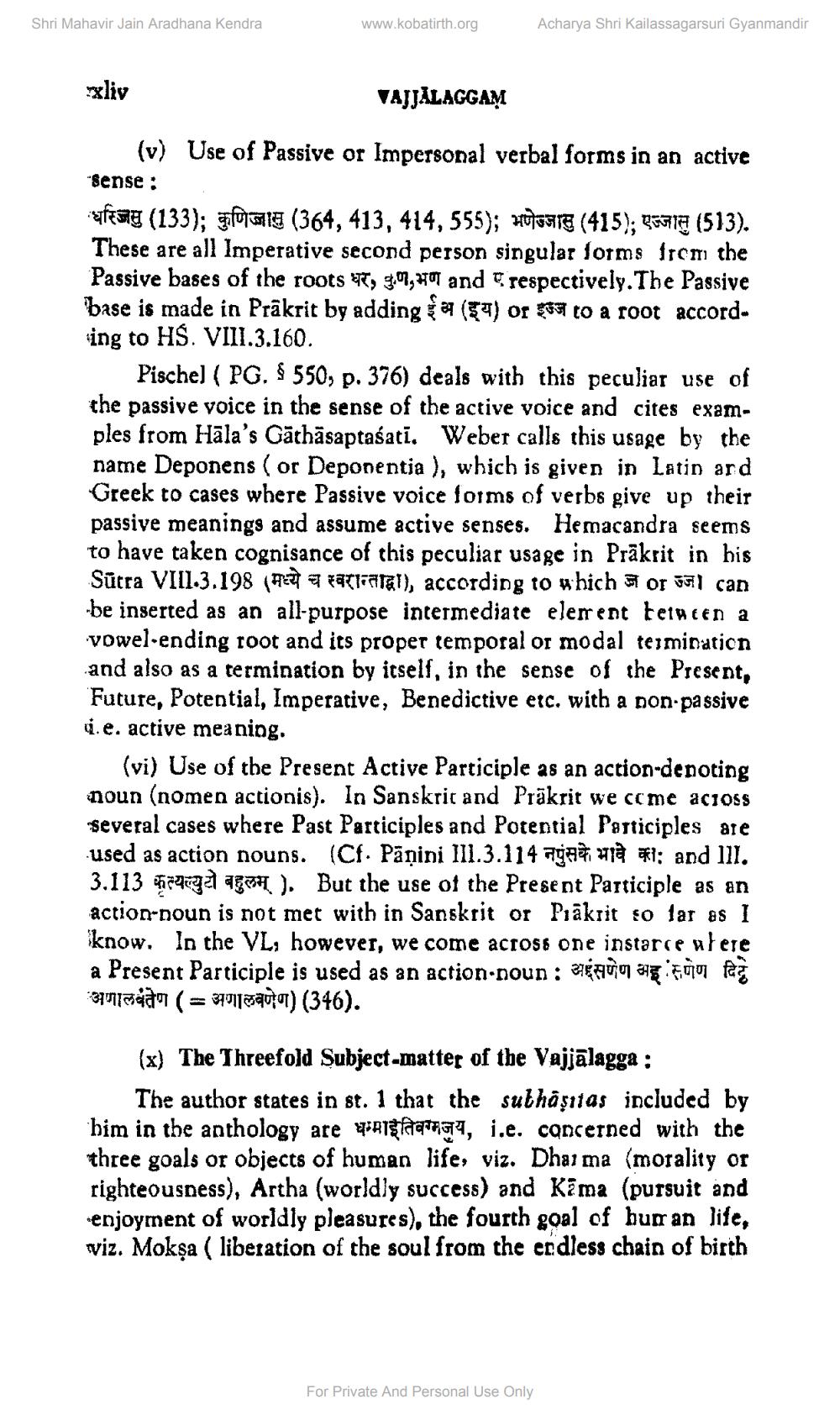________________
Shri Mahavir Jain Aradhana Kendra
www.kobatirth.org
Acharya Shri Kailassagarsuri Gyanmandir
xliv
VAJJALAGGAM
(v) Use of Passive or Impersonal verbal forms in an active "Sense : Efesy (133); fomia (364, 413, 414, 555); HUGATE (415); 85718 (513). These are all Imperative second person singular forms from the Passive bases of the roots 77, 509,07 and respectively. The Passive base is made in Prakrit by adding a (59) or $537 to a root according to HS. VIII.3.160.
Pischel ( PG. $ 550, p. 376) deals with this peculiar use of the passive voice in the sense of the active voice and cites examples from Hāla's Gāthāsaptaśati. Weber calls this usage by the name Deponens (or Deponentia ), which is given in Latin ard Greek to cases where Passive voice forms of verbs give up their passive meanings and assume active senses. Hemacandra seems to have taken cognisance of this peculiar usage in Prakrit in his Sūtra VIII.3.198 (922 atatal), according to which w or 181 can be inserted as an all-purpose intermediate element teineen a vowel-ending root and its proper temporal or modal termination and also as a termination by itself, in the sense of the Present, Future, Potential, Imperative, Benedictive etc. with a non-passive .e. active meaning.
(vi) Use of the Present Active Participle as an action-denoting noun (nomen actionis). In Sanskrit and Prākrit we come acioss several cases where Past Participles and Potential Participles are used as action nouns. (Cf. Pāṇini III.3.114 aga uue #1: and III. 3.113 chegar ao ). But the use of the Present Participle as an action-noun is not met with in Sanskrit or Prākrit so far as I know. In the VL, however, we come across one instarce alere a Present Participle is used as an action noun : असणेण भइसणेण दिढे 3712idt (= 30||aut) (346).
(x) The Threefold Subject-matter of the Vajjālagga :
The author states in st. 1 that the subhāşıtas included by him in the anthology are paistaa94, i.e. concerned with the three goals or objects of human life, viz. Dhai ma (morality or righteousness), Artha (worldly success) and Kama (pursuit and enjoyment of worldly pleasures), the fourth goal of human life, viz. Mokşa ( liberation of the soul from the endless chain of birth
For Private And Personal Use Only




